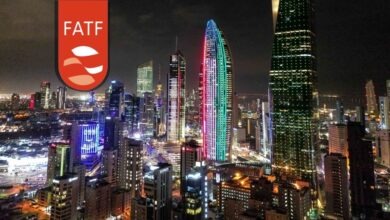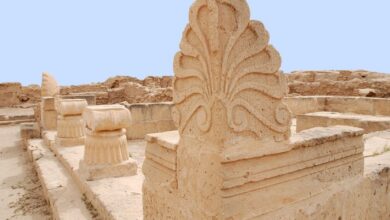GCC nations rise as key players in global economic, political arenas
The GCC’s global economic influence is marked not only by its position as the top oil producer and holder of the largest reserves but also by its sovereign funds, which have $4.4 trillion in assets impacting countries worldwide.

• The GCC economies, ranked among the world’s strongest, are expected to rebound with growth forecasts of 2.8% in 2024 and 4.7% in 2025, despite regional geopolitical challenges.
• Gulf sovereign wealth funds are set to reach $7.3 trillion by 2030, driven by increased investment activity and a growing influence in major deals.
• The GCC, with a GDP of $2.4 trillion and a 6% growth rate, ranks as the eighth-largest economy, while Gulf capital markets have gained significant momentum, attracting major companies and securing international listings.
The 45th Gulf Summit, held in Kuwait under the slogan “GCC… United Journey,” commenced today, drawing unprecedented regional and international attention. The Gulf countries’ economic and political influence has positioned them at the center of global focus, Al Qabasnewspaper reported.
The figures highlight the significant role of the GCC countries in the global economy, not only as the largest producer and exporter of oil and holder of the world’s largest reserves of crude oil and natural gas but also due to the diverse and widespread investments of Gulf sovereign funds. These funds have had an impact on most countries worldwide, with assets totaling $4.4 trillion.
The economies of the GCC countries are ranked among the strongest globally, playing an influential and powerful role politically and economically.
GCC countries economic growth to rebound
Despite geopolitical challenges in the region, global organizations and specialized rating agencies forecast economic growth in the GCC countries to rebound, reaching 2.8% in 2024 and 4.7% in 2025.
The regional outlook is promising, with a recovery expected not only from increased oil production but also from the strong momentum of the non-oil economy, which is anticipated to continue expanding at a robust pace in the medium term.
The vision of the GCC leadership is reflected in their efforts to diversify their economies, contributing to enhanced resilience and sustainable development during a period of global economic fluctuations.
Achieving economic integration among GCC nations
The Cooperation Council for the Arab States of the Gulf strives to achieve economic integration among GCC countries by establishing a customs union and activating the common market of the GCC States.
While intra-Gulf coordination is at its highest levels across political, security, and military sectors, there is an urgent need to complete economic integration, which requires some flexibility and concessions to achieve long-term goals.
Joint Gulf action is a key pillar of economic development, strengthening efforts to promote intra-GCC trade. It also unifies the stance of GCC countries to overcome economic challenges, benefiting both the private sector and GCC citizens.
GCC made significant strides in economic field
In light of the data and achievements across all sectors since its inception in 1981, particularly in the economic field, the GCC has made significant strides. These include the establishment of the free trade zone (1983), the launch of the customs union (2003), the declaration of the Gulf Common Market (2007), progress toward a monetary union, the creation of the Monetary Council, and the start of its tasks in preparation for the establishment of a central bank.
The importance of integrating financial markets in the GCC countries and unifying related policies and regulations has become increasingly evident, given the crucial nature of these issues.
The GCC Economic Agreement aims to activate the Gulf Common Market and maximize its benefits, as confirmed by the Supreme Council during its thirtieth session (Kuwait, December 2009).
The council instructed the relevant ministerial committees to develop the necessary mechanisms to implement Article 5 of the Economic Agreement, which calls for “the integration of financial markets in the GCC countries and the unification of policies and regulations related to them.” The goal is to foster local, financial, and foreign investments in the GCC countries, providing an investment environment characterized by transparency and stability.
Influence of Gulf sovereign funds
As the influence of Gulf sovereign wealth funds expands, their combined assets are projected to reach $7.3 trillion by 2030, reflecting a 49% increase from 2024.
According to Bloomberg, the growing impact of these funds is prompting managers, bankers, and consultants to establish regional offices, often staffed with international specialists who may eventually work within these funds.
The agency reports that Gulf sovereign wealth funds are increasing their investment activity, making it easier to attract top talent while strengthening their position as key players in major deals.
Together, the GCC countries represent the eighth-largest economy in the world, with an estimated annual growth rate of 6% and a gross domestic product of $2.4 trillion.
Gulf capital markets achieve significant gains
Gulf capital markets have experienced unprecedented momentum in recent years, achieving significant gains in both attracting large companies for listing and securing the inclusion of many companies in international stock indices.
According to the latest data, the net profit of companies listed on the Gulf stock exchanges over a nine-month period amounted to approximately $176.6 billion. Profits for Gulf banks grew year-on-year by 10.2%, reaching $14.9 billion, while profits in the basic materials sector have seen multiple-fold increases.
Completion of the inter-GCC railway project
The 45th Gulf Summit in Kuwait is expected to include confirmations on the completion of the inter-GCC railway project, which aims to boost trade and tourism.
The project will establish a railway route starting in Kuwait, passing through Dammam to Bahrain, and from Dammam to Qatar via the Salwa port. It will also connect Qatar to Bahrain, Saudi Arabia to the UAE (Abu Dhabi and Al Ain), and ultimately to Muscat via Sohar.
The total route length is estimated at 2,117 km, linking Kuwait City to Muscat through all GCC countries.
Passenger trains will travel at speeds of up to 220 km/h, while freight trains will operate at speeds between 80 and 120 km/h, powered by diesel-generated electricity.
The project will utilize the best regional and global standards and specifications for the rail sector, including axial loads, signaling and communication systems, and operation and maintenance systems.
Numbers and indicators
- The Gulf countries produce 16 million barrels of oil per day.
- Gulf nations are the first in the world in crude oil and natural gas reserves.
- The financial value of the Gulf stock markets reached $4 trillion by the end of 2023.
- The economies of the GCC countries together rank 12th globally.
- The size of the assets of the Gulf sovereign wealth funds has reached $4.4 trillion.
- $2.4 trillion is the GDP of the six GCC countries.
- The value of intra-Gulf trade is $107 billion.
- The Gulf electrical interconnection project has achieved economic savings exceeding $3 billion.
Supporting factors: The Gulf region enjoys many advantages that qualify its economies for growth, such as:
- Security stability that encourages both internal and external investments.
- Oil resources, as the Gulf region is among the richest in oil and natural gas reserves.
- Infrastructure development and the availability of modern transportation networks.
- Superior flexibility in overcoming obstacles for foreign investors, with many Gulf countries offering areas for foreign ownership.












